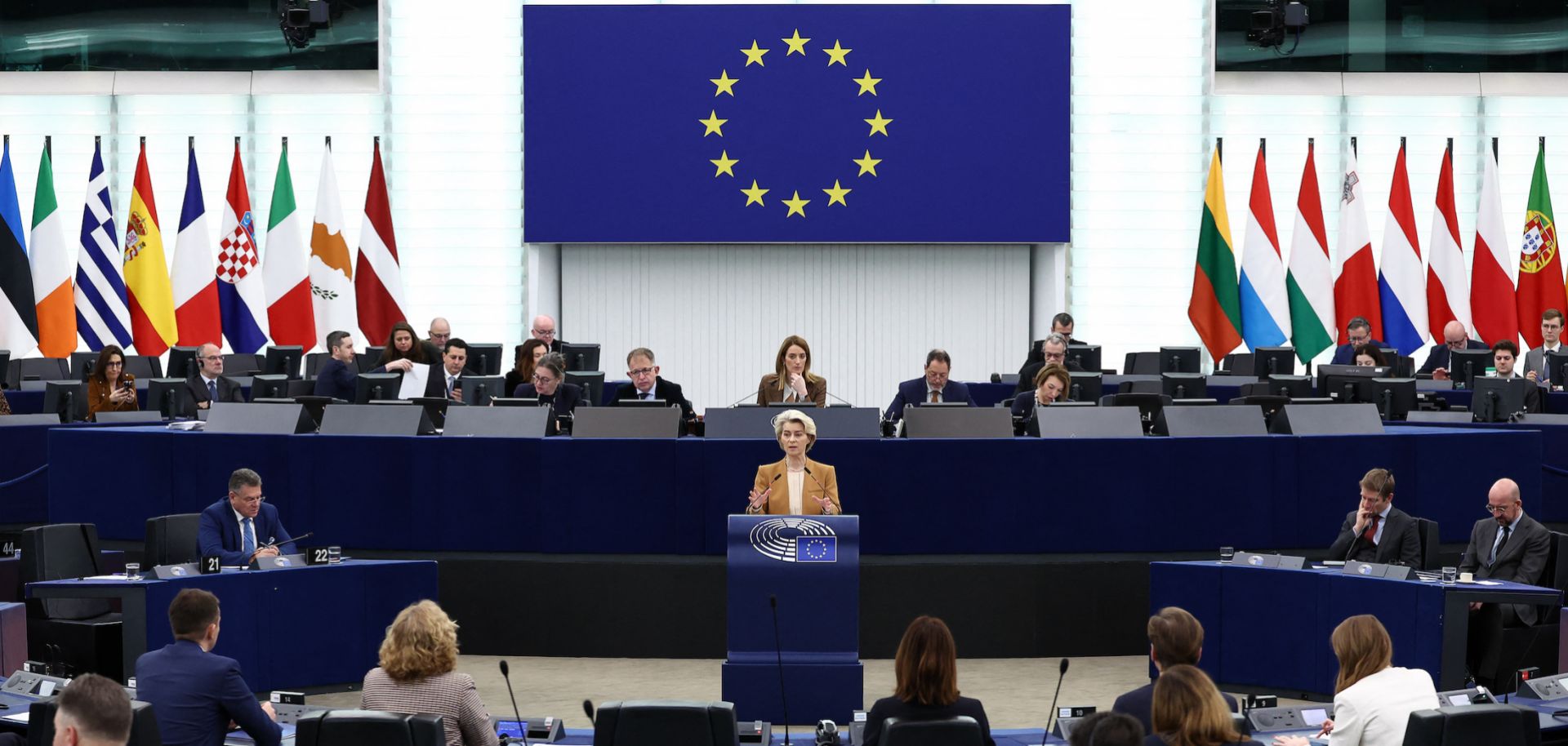The European Union's green industrial plan will give it greater flexibility to promote investment in green technologies and support local manufacturing, but the plan will likely fail to significantly enhance the bloc's industrial competitiveness vis-a-vis the United States and China. On Feb. 6, the European Parliament and the European Council reached a provisional agreement on a series of measures to strengthen the European Union's green technologies manufacturing ecosystem under a framework known as the Net-Zero Industry Act (NZIA). The plan sets a target for the European Union to produce 40% of its own demand for green technology products (like solar panels and electric vehicle batteries) by 2030, by accelerating permitting procedures and access to funding, improving labor skills and enhancing the overall global competitiveness of EU companies. Moreover, the agreement between the European Parliament and European Council broadened the scope of the European Commission's original proposal to also include third-...

